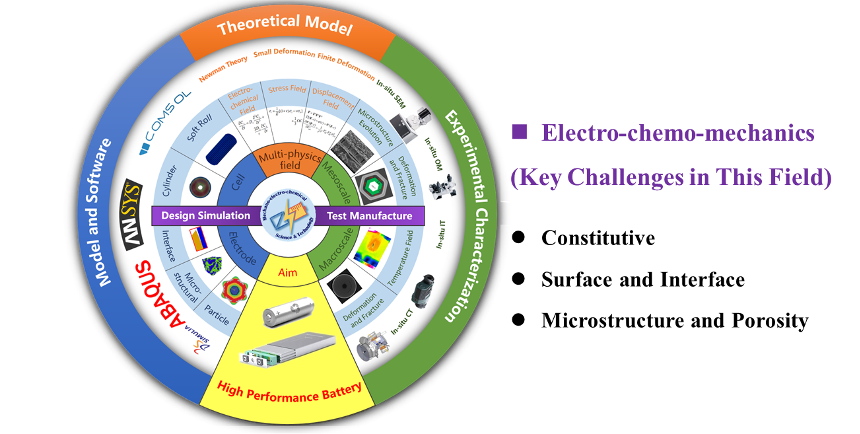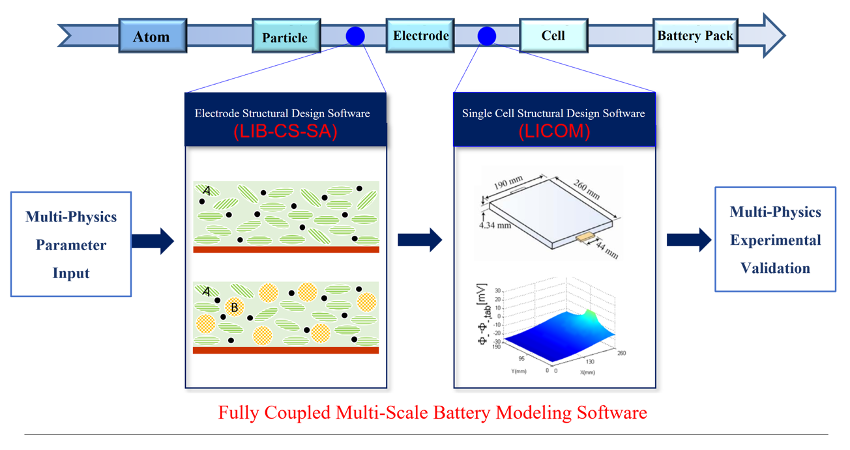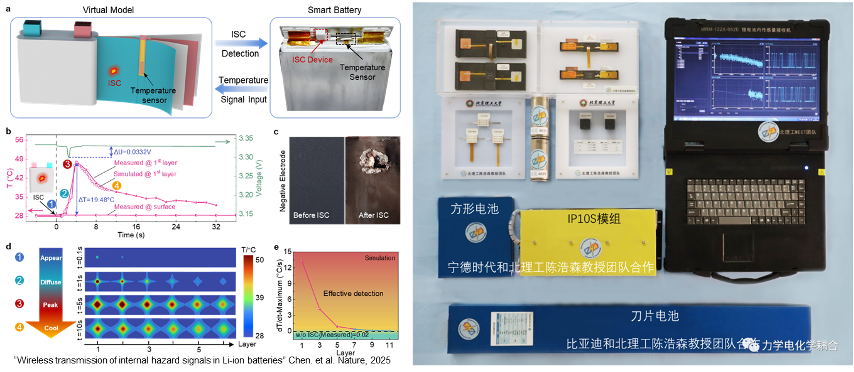Mechanical design of energy batteries is an interdisciplinary field that integrates mechanics, electrochemistry, and materials science. It focuses on the multi-scale advanced structural design and performance optimization of energy batteries under multi-physics fields. The research aims to optimize battery design by deeply analyzing the mechanical behavior of battery materials, electrochemical processes, and their interactions, thereby improving battery safety, energy density, and cycle life. It encompasses comprehensive technologies from material selection and microstructure design to system-level integration, aiming to advance energy battery technology through innovative structural designs and material applications to meet the growing demand for energy storage.
n Electro-chemo-mechanics
This research is mainly put stress on lithium-ion batteries and other energy devices, focusing on the coupling mechanisms between mechanical deformation and failure, ion transport, and electron transfer at different scales. It also investigates the non-equilibrium reaction kinetics and builds theoretical models that bridge structures, particles, electrodes, and cells across scales. The field develops multi-physics field design theories and optimization methods (involving electric, electrochemical, mechanical, and thermal fields), and creates in‑situ characterization instruments and non-destructive testing technologies for battery service conditions. Electrochemical solid mechanics addresses critical national strategies for carbon neutrality and scientific frontiers, featuring strong interdisciplinary collaboration and the characteristics of a novel subject field.

n Advanced Battery Structural Technology
This area focuses on enhancing battery performance—such as energy density, power density, safety, and lifespan—through innovative structural designs. It involves optimal selection of battery materials, electrode structure design, and overall battery structure optimization. By employing multi-scale simulation and in‑situ experimental validation, it aims to achieve synergistic optimization of multi-physics interactions within batteries, thus improving overall performance.


n Intelligent Battery Sensing Technology
Intelligent battery sensing technology refers to the integration of sensors within batteries to monitor real‑time operational status, including temperature, pressure, strain, and gases. The main goal is to develop high‑precision, high‑stability sensors along with corresponding data acquisition and processing systems for real‑time evaluation and early warning of battery health conditions (e.g., “Wireless transmission of internal hazard signals in Li‑ion batteries,” Chen et al., Nature, 2025). These technologies also support the design of new battery models and optimization of charging strategies and maintenance plans. As a key enabler of intelligent battery management systems, intelligent sensing technology is especially important for electric vehicles and large-scale energy storage applications.

